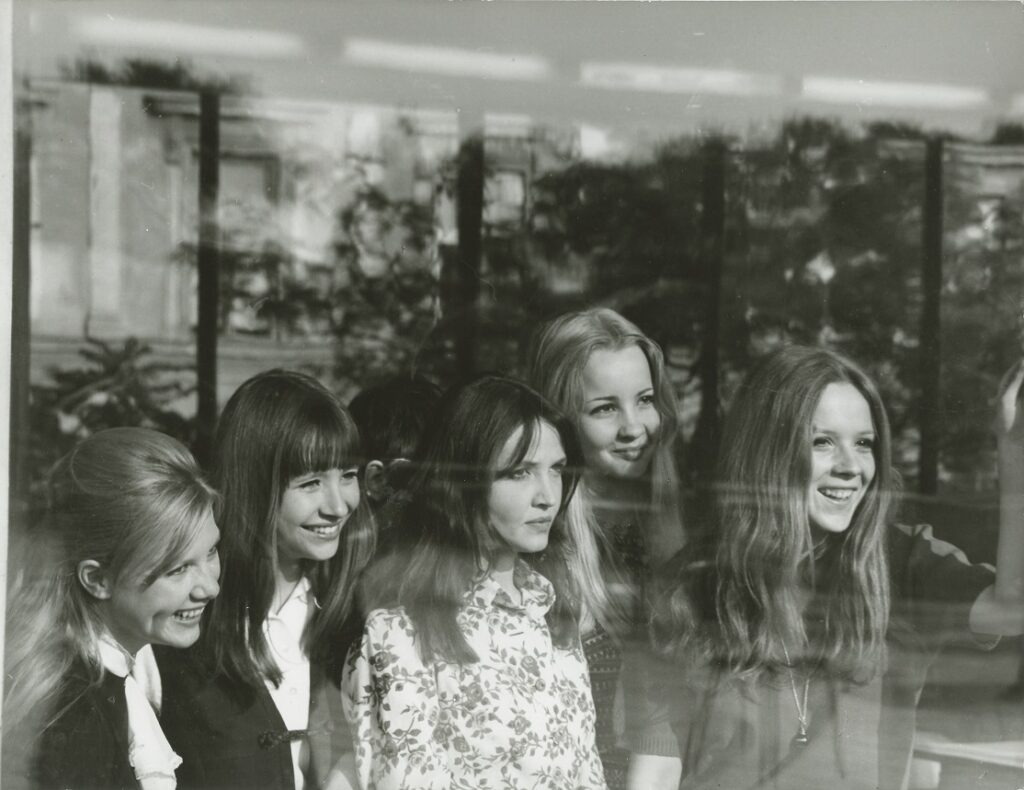Although this drama from prolific Hungarian director Márta Mészáros is 50 years old, it is only now receiving a UK premiere courtesy of the Berwick Film and Media Arts Festival. Don’t Cry, Pretty Girls! (or Szép lányok, ne sírjatok! in the original Hungarian) is less of a timeless classic and more of a timestamp, capturing a seminal moment of change in Hungarian society through the personalised story of a select few characters.
A tightly knit group of young men and women hit the streets of Budapest after their shift working in the factory has ended. They indulge themselves in drinking, sex and live music, while in their private time reveal more of a longing for intimacy and genuine connections. Among the crowd are soon-to-be-married couple Savanyú (Márk Zala) and Juli (Jaroslava Schallerová), who are clearly in love but struggle to make time for each other. At a concert, Juli starts to have feelings for heartthrob cellist Géza (Lajos Balázsovits), and suddenly has to make a difficult decision as to where her affections really lie.

Mészáros’ film is in many ways a bleak depiction of life in the Eastern Bloc prior to the fall of the Iron Curtain. It cannot, however, be fairly compared to the kitchen sink realism popular in British cinema at the time. Instead, the mood is often elevated by the almost constant presence of music, with tactful uses of humour both as comedic relief and as an insight into the mindset of Hungary’s younger generation. The main band, Metro, is akin to The Beatles in a way that can’t be missed, exemplifying how pop culture’s outreach was finding its way into the Eastern bloc of Europe. It is also uniquely Hungarian – most obviously when the band, rather than performing translations of English songs, instead adapt Hungarian poems written years before their time. But the empty shells of a poverty-stricken nation also feature. This juxtaposition often contextualises indecision, with freedom of choice leading some of the characters to come to judgements not previously expected from them.
Don’t Cry, Pretty Girls! is foremost a story of attraction and freedom. Juli is captured in an endlessly fascinating light by Schallerová, who also handles her moments of doubt and passion with equal levels of expertise. Her attraction to Géza escapes the logic of her male peers – as they put it, Savanyú has a job, money, a good family. What else could she want? The female experience has always been a key aspect of Mészáros’ approach to films, and here Juli is seen as someone holding most of the cards despite observing an apparently passive role in the face of her male friends.
The nature of such a film rooted firmly in specific social history makes it more a watch for the brain than the heart. If you don’t find these kinds of topics interesting, then you are unlikely to be as engaged as you would want to be. It is something that Mészáros’ later work such as Adoption or Diary for my Children manages to avoid, and these remain the standout efforts of her distinguished career. Nonetheless, a fascinating social portrait is to be found here, and a youthful vibrancy captured in every shot results in a colourful depiction of desire and change in a world that risks collapsing into bleakness… not that we know what that feels like.
Don’t Cry, Pretty Girls! is available to watch here as part of BFMAF until October 11th.
